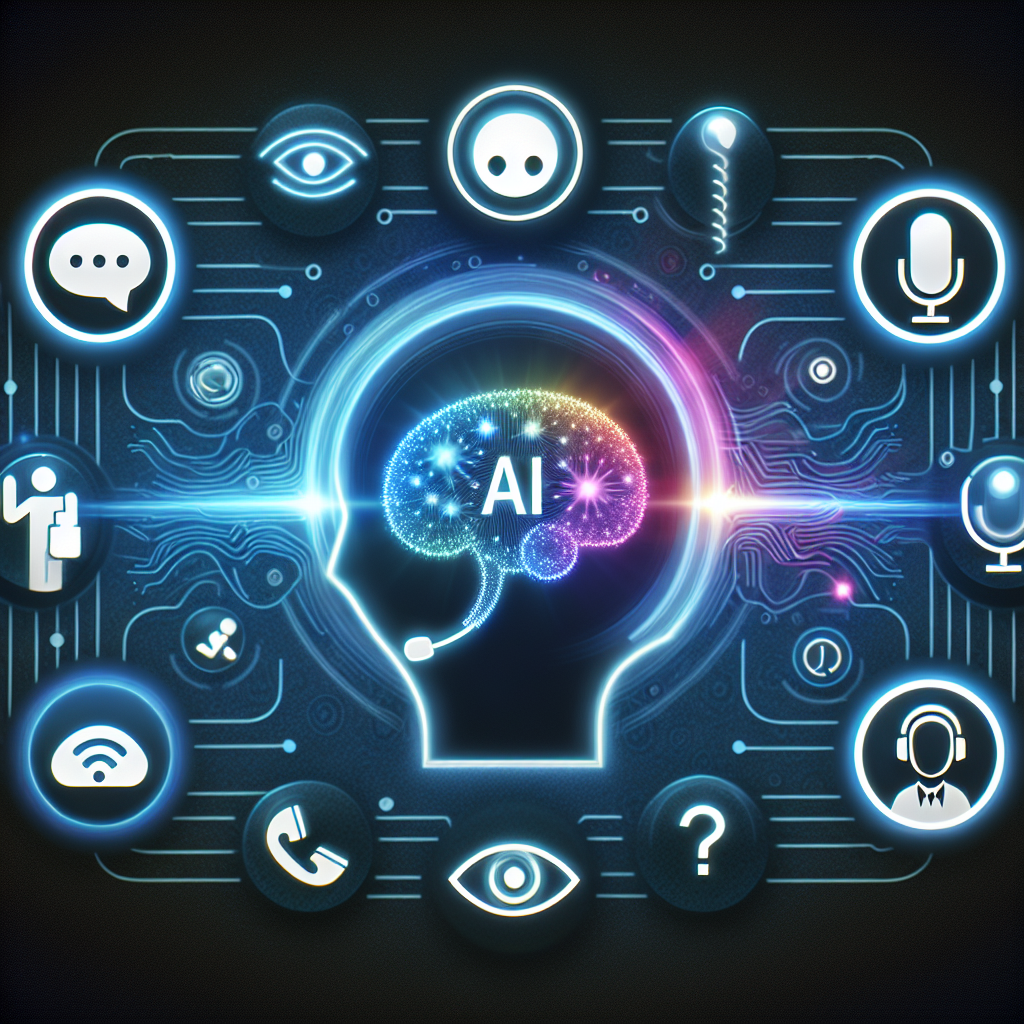Artificial Intelligence (AI) has revolutionized the way businesses interact with their customers. One of the most popular applications of AI in customer service is through AI-powered virtual assistants. These virtual assistants, also known as chatbots, are intelligent software programs that can simulate a conversation with human users in order to provide assistance or information.
AI-powered virtual assistants are redefining customer service by offering 24/7 support, instant responses, and personalized interactions. They can handle a wide range of customer inquiries, from answering simple questions to providing detailed product information. This not only improves the customer experience but also saves businesses time and resources by automating routine tasks.
Benefits of AI-Powered Virtual Assistants
1. Improved Customer Experience: AI-powered virtual assistants can provide instant responses to customer inquiries, leading to faster resolution times and increased customer satisfaction.
2. Cost-Effective: Virtual assistants can handle a large number of customer inquiries simultaneously, reducing the need for additional customer service agents and lowering operational costs.
3. Increased Productivity: By automating routine tasks, virtual assistants free up human agents to focus on more complex customer issues, improving overall productivity.
4. Personalized Interactions: AI-powered virtual assistants can analyze customer data to provide personalized recommendations and tailored responses, creating a more engaging customer experience.
5. 24/7 Support: Virtual assistants are available round the clock, ensuring that customers can get assistance whenever they need it, even outside of regular business hours.
6. Scalability: Virtual assistants can easily scale up to handle a high volume of customer inquiries, making them an ideal solution for businesses with fluctuating support needs.
AI-Powered Virtual Assistants in Action
Many companies across various industries have already implemented AI-powered virtual assistants to enhance their customer service. For example, banks and financial institutions use virtual assistants to provide account information, process transactions, and answer common customer inquiries. E-commerce companies use virtual assistants to assist customers with product recommendations, order tracking, and returns.
In the healthcare industry, virtual assistants are used to schedule appointments, provide medical information, and offer support for patients with chronic conditions. In the travel industry, virtual assistants help customers book flights, hotels, and rental cars, as well as provide destination information and travel tips.
Overall, AI-powered virtual assistants have become an essential tool for businesses looking to streamline their customer service operations and provide a more efficient and personalized experience for their customers.
FAQs about AI-Powered Virtual Assistants
Q: How do AI-powered virtual assistants work?
A: AI-powered virtual assistants use natural language processing (NLP) and machine learning algorithms to understand and respond to user inquiries. They can be programmed to handle a wide range of tasks, from answering simple questions to conducting complex transactions.
Q: Can virtual assistants replace human customer service agents?
A: While virtual assistants can handle many routine customer inquiries, they are not designed to replace human agents entirely. Human agents are still needed to handle more complex issues and provide a personal touch that AI-powered virtual assistants may lack.
Q: How secure are AI-powered virtual assistants?
A: Virtual assistants are designed to adhere to strict security protocols to protect customer data and ensure privacy. Companies that implement virtual assistants should ensure that they comply with industry regulations and best practices for data security.
Q: How can businesses benefit from implementing AI-powered virtual assistants?
A: Businesses can benefit from implementing AI-powered virtual assistants by improving customer service, reducing operational costs, increasing productivity, and providing a more personalized experience for their customers. Virtual assistants can also help businesses scale their customer service operations to meet fluctuating demand.
Q: What are the limitations of AI-powered virtual assistants?
A: While AI-powered virtual assistants have many benefits, they also have limitations. Virtual assistants may struggle to understand complex or ambiguous questions, and they may not be able to provide the same level of empathy and emotional support as human agents. Additionally, virtual assistants may require ongoing training and updates to remain effective.
In conclusion, AI-powered virtual assistants are redefining customer service by offering 24/7 support, instant responses, and personalized interactions. Businesses that implement virtual assistants can improve customer satisfaction, reduce operational costs, and increase productivity. While virtual assistants have limitations, they are a valuable tool for businesses looking to enhance their customer service operations and provide a more efficient and engaging experience for their customers.

